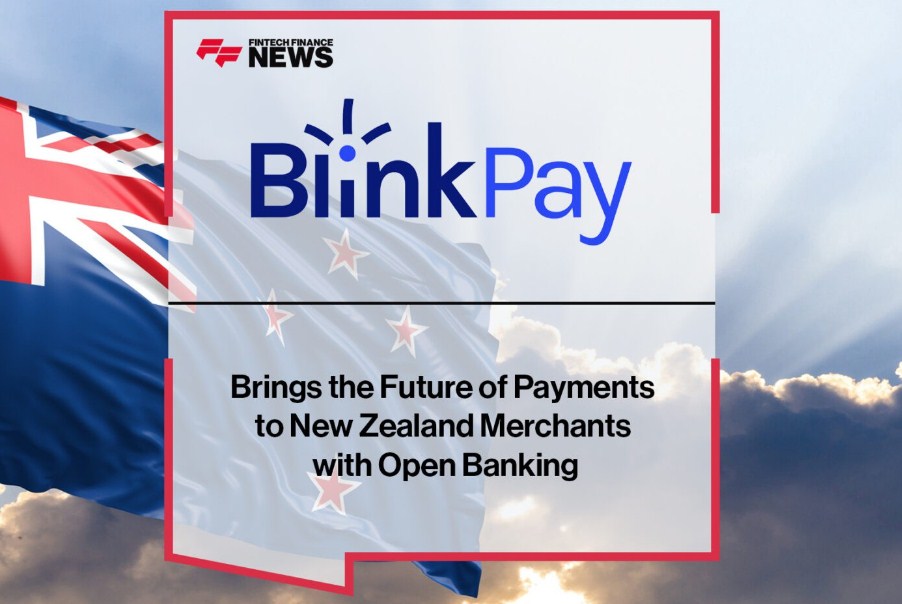BlinkPay is a new fintech startup that aims to emulate the success of open banking in the UK with its innovative platform that connects consumers, businesses and banks in New Zealand. The company, which was founded in 2022, has recently launched its beta version and is looking for early adopters to test its features and provide feedback.
What is Open Banking and Why is it Important?
Open banking is a concept that allows customers to share their financial data and access a range of products and services from different providers through a single platform. This gives customers more choice, control and convenience over their finances, as well as the opportunity to save money and access better deals. Open banking also fosters competition and innovation in the financial sector, as new entrants can offer more personalised and tailored solutions to customers.
Open banking has been implemented in several countries, such as the UK, the EU, Australia and Singapore, with varying degrees of success and adoption. In the UK, open banking was introduced in 2018 as a result of a regulatory mandate by the Competition and Markets Authority (CMA), which aimed to increase competition and transparency in the banking industry. Since then, open banking has grown rapidly, with over 3 million customers using open banking-enabled products and services as of June 2021.
How Does BlinkPay Work and What are its Benefits?
BlinkPay is a platform that leverages open banking technology to enable customers to make instant and secure payments from any bank account to any merchant or service provider in New Zealand. Customers can use BlinkPay’s app or website to scan a QR code or enter a payment link, choose their bank account and confirm the payment with their bank’s authentication method. The payment is then processed in real-time through BlinkPay’s network of partner banks, without the need for cards, wallets or intermediaries.
BlinkPay claims that its platform offers several benefits for both customers and merchants, such as:
- Lower fees: BlinkPay charges a flat fee of 0.5% per transaction for merchants, which is significantly lower than the average card fees of 2-3%. Customers do not pay any fees for using BlinkPay.
- Faster settlements: BlinkPay settles payments within seconds, compared to the typical card settlement time of 2-3 days. This improves cash flow and reduces fraud risk for merchants.
- More security: BlinkPay does not store or share any sensitive customer data, such as card numbers or passwords. Customers authenticate their payments directly with their banks, using biometrics or PINs. BlinkPay also uses encryption and tokenisation to protect the payment data in transit.
- More convenience: Customers can use BlinkPay to pay from any bank account they have access to, without the need to carry cards or remember passwords. They can also view their transaction history and manage their preferences on the app or website.
- More rewards: BlinkPay offers loyalty programs and cashback incentives for both customers and merchants, based on their spending patterns and preferences.
What are the Challenges and Opportunities for BlinkPay?
BlinkPay faces several challenges and opportunities in its quest to revolutionise open banking in New Zealand. Some of these are:
- Regulation: Unlike the UK, New Zealand does not have a regulatory framework for open banking yet. This means that BlinkPay has to rely on voluntary agreements with banks and other stakeholders to access their data and infrastructure. This could limit its scalability and interoperability, as well as expose it to legal and compliance risks.
- Adoption: BlinkPay has to convince customers and merchants to trust and use its platform, which could be challenging given the low awareness and familiarity with open banking in New Zealand. BlinkPay has to educate its target market about the benefits and security of its platform, as well as overcome the inertia and loyalty of existing payment methods.
- Competition: BlinkPay competes with other payment platforms, such as PayPal, Google Pay, Apple Pay and Paymark, which have established brands and customer bases in New Zealand. BlinkPay has to differentiate itself from these competitors by offering more value-added features and services, such as loyalty programs, cashback incentives and financial wellness tools.
- Innovation: BlinkPay has the opportunity to leverage its open banking platform to offer more innovative products and services to its customers and merchants, such as lending, savings, budgeting, investing and insurance. BlinkPay can also expand its network to include other partners, such as fintechs, telcos, utilities and government agencies.
BlinkPay is an ambitious fintech startup that aims to emulate the UK open banking success with its platform that connects consumers, businesses and banks in New Zealand. The company faces several challenges and opportunities in its journey to disrupt the payment industry and create a more inclusive and efficient financial ecosystem.

